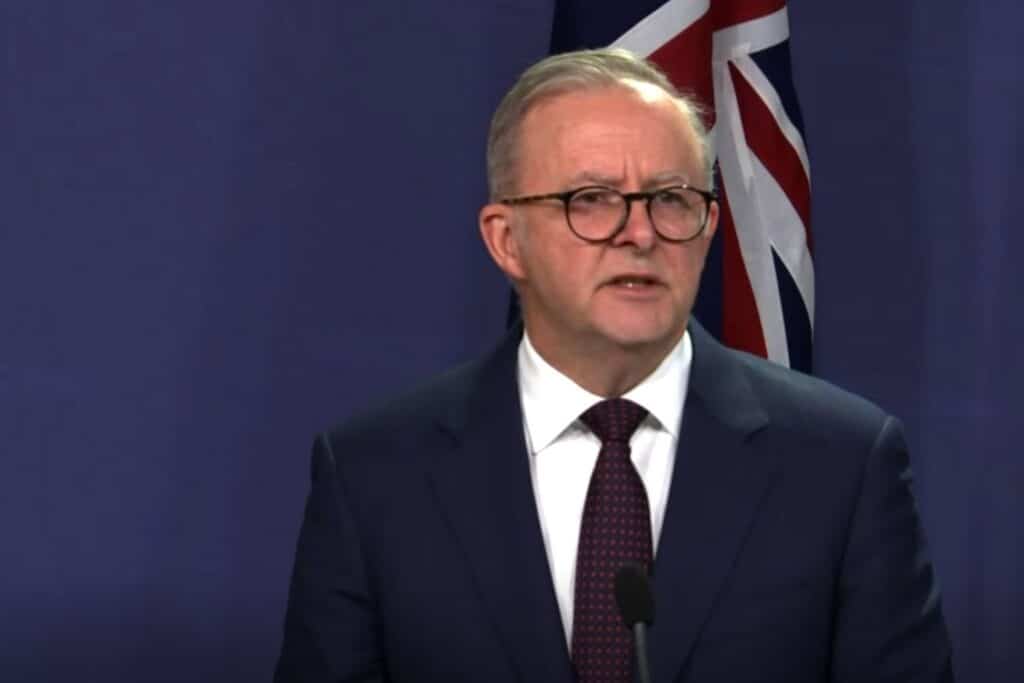The federal government has reversed its decision to exclude broader questions about gender and sexuality from the 2026 census, following a week of public backlash.
On Friday morning, Prime Minister Anthony Albanese made the announcement that there would be one new question about sexuality in the census if testing by the Australian Bureau of Statistics was successful.
However, Albanese maintained his decision to exclude other proposed questions that included trans and intersex Australians into the national count.
“We’ve been talking with the Australian Bureau of Statistics, and they’re going to test for a new question, one question about sexuality, sexual preference,” Albanese said.
“We haven’t sat down and gone through line by line and said what questions will be asked in the census in two years’ time, in 2026. That’s a job for the ABS.”
Last year, the Australian Bureau of Statistics apologised for the “hurt, stress, and anguish” caused by the exclusion of questions after a case brought to the Australian Human Rights Commission.
Just a week ago, the government said the decision to not include gender identity and sexuality within the 2026 census was made to avoid a “divisive” debate.
A number of Coalition MPs expressed their surprise at the move as well, saying they had no problem with it. Opposition leader Peter Dutton, however, suggested the existing census questions worked well.
Earlier this month, Albanese was again at the centre of backlash from the LGBTQ community after abandoning his election pledge to introduce religious discrimination reforms and protect LGBTQ students and teachers. This was another bid to avoid a “culture war”.
The LGBTQIA+ community’s stance
LGBTQIA+ advocates reacted with deep dismay to the government’s decision to scrap the questions on Monday, with many saying the move excluded the community.
“In a country that prides itself on diversity, it’s disheartening to see the 2026 Census exclude critical people. The Census is supposed to reflect the full spectrum of society, yet by not including LGBTIQ+ options in sexual orientation or gender, it actively erases entire communities,” wrote tech leader Luli Adeyemo in an opinion piece on the matter.
The LGBTQ Domestic Violence Awareness Foundation said they were “devastated to learn about the absence of LGBTQI+ data from Australia’s 2026 census”.
“This exclusion will have an impact on vulnerable communities and undermines the Federal Government’s commitment to ending violence.”
Along with advocates and organisations throughout Australia calling out the government, internally there was backlash as well, with Labor members distancing themselves from the move.
Six Labor MPs, including assistant minister Ged Kearney, said at the time that they wanted the government to change its decision to include gender identity and sexuality in the census.
“The census not only informs policy and service delivery but paints a picture of modern Australia in all its beauty and diversity,” Kearney told the ABC.
“For too long LGBTQIA+ people have felt excluded from this picture … I’m working to ensure these views are represented within the Albanese Labor government.”
Commitments made by the Australian Bureau of Statistics
In September 2022, Equality Australia and non-binary parent and partner April Long (they/them) lodged a formal complaint to the Australian Human Rights Commission alleging unlawful discrimination against their family and other LGBTIQ+ people.
Following this, the ABS issued a statement of regret and committing to do better by the community.
The ABS said the topics of sexual orientation, gender identity and variation of sex characteristics would be tested prior to the government making a decision on the 2026 census topics.
If ultimately included, the ABS said it would ask any questions on sexual orientation, gender identity and variations of sex characteristics separately so LGBTIQ+ subpopulations can be meaningfully identified.

